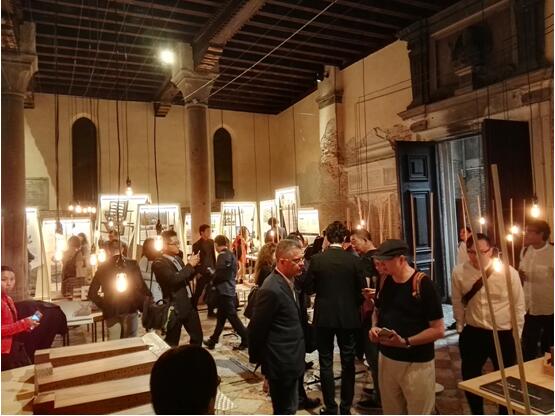In Venice, this year's Architecture Biennale is looking to examine the role of architects and how they shape our modern society. Designers from all over the world have made the trip to Italy, including a Chinese designer who is showcasing his pioneering piece of work.

In Venice, this year's Architecture Biennale is looking to examine the role of architects and how they shape our modern society.
Born in Taiwan in the late 1970s, Lin Congran, has been invited as an official participant in this year’s Venice Architecture Biennale. On display is his maiden design for this event, the Youbang Campus. The project aims to demonstrate his ideas and layout for an industrial park in Zhejiang Province.
"The tree rings gave us inspiration for the design. In the Chinese lunar calendar, we have not only four seasons but also 24 solar terms. So we decided to use this corridor along the river as a connection of different feelings in different seasons of the people who work and live here," Lin said.
The building facilities lay along both sides of a small river, which divides the site into a north and south block. The north block is for factories, offices, accommodation and dinning outlets. The south block hopes to be used as an exhibition gallery for the company. Congran is aiming to reproduce the very primitive earthy smell of Jiangnan (江南)and help the audience experience that environment.
The rest of the block is divided into seven pieces, a collective and experimental work by seven world-famous architectural firms.
Benedetta Tagliabue, who is also a judge of the famous Pritzker Architecture Prize, has taken a part in this designers' village.
"This is also about educating other people and making them arrive there so they can learn and give ideas," Tagliabue said.
Congran also cites great importance to the cultural responsibilities in his work.
"In the past, our land was used for cultivation and agricultural production. However, nowadays we use it more for industrial purposes. Although it is considered as a social evolution, the land is in fact getting much more far away from humans. We cannot go back; instead we can add more humanistic and traditional things when we deal with the industrialization," Lin said.
The whole campus, which covers more than 100,000 square meters, will be completed by the end of 2017.















